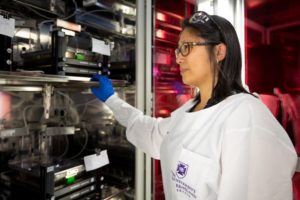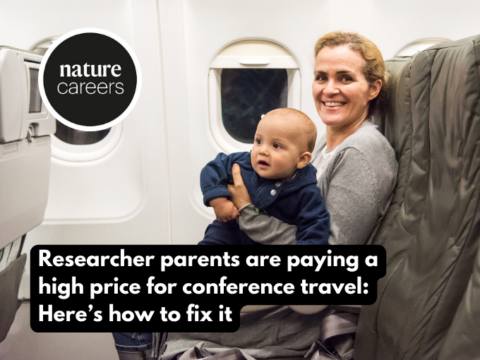
Shyuan Ngo divided her lab members at the University of Queensland into rotating groups to keep them from crossing paths with one another amid the COVID-19 pandemic.Credit: Martin Gibbons/Digital Black
Around the world, universities have closed because of COVID-19 — forcing an increasing number of researchers to work and teach from home.
Some scientists can’t simply stop going to their laboratories — especially not those who are overseeing clinical trials that could offer life-saving vaccines and therapies, particularly against the new coronavirus. And some research activities must continue even in the face of a shutdown. “Animals need to be looked after, and breeding lines must be kept going. Many of these are unique and can’t be regenerated,” says Mike Turner, director of science at Wellcome, a research-funding charity in London.
So how are scientists staying save and still getting into the lab? Read this article by

 Print This Post
Print This Post




